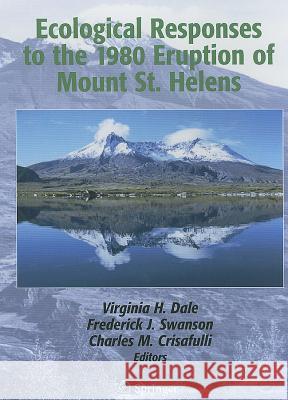Ecological Responses to the 1980 Eruption of Mount St. Helens » książka
Ecological Responses to the 1980 Eruption of Mount St. Helens
ISBN-13: 9780387238685 / Angielski / Twarda / 2005 / 342 str.
Ecological Responses to the 1980 Eruption of Mount St. Helens
ISBN-13: 9780387238685 / Angielski / Twarda / 2005 / 342 str.
(netto: 191,66 VAT: 5%)
Najniższa cena z 30 dni: 192,74
ok. 16-18 dni roboczych.
Darmowa dostawa!
Recon?guring Disturbance, Succession, and Forest Management: The Science of Mount St. Helens When Mount St. Helens erupted on May 18, 1980, it did more than just recon?gure a large piece of Cascadian landscape. It also led to dramatic revisions in our perspectives on disturbances, secondary succession, and forestry practices. The Mount St. Helens landscape turned out to be a far more complex place than the "moonscape" that it initially appeared to be. Granted, a large area was literally scoured and sterilized, and that vast expanse of newly formed rock, mud?ows, and avalanche debris up and down the mountain made the Mount St. Helens landscape unique. But I still remember my surprise when, as I stepped out of the helicopter on ?rst landing within the extensive "devastated zone," I saw hundreds of plants pushing their way up through the mantel of tephra. Surviving organisms were stunning in their diversity, abundance, and the mechanisms by which they survived. They persisted as whole organisms living below ground, encased within late-persisting snowbanks, and buried in lake and stream sediments. They survived as rhizomes transported along with the massive landslide that accompanied the eruption and as stems that suffered the abrasion of mud?ows. Mud?ows ?oated nurse logs covered with tree seedlings and then redeposited them on the ?oor of a forested river terrace. Millions, perhaps billions, of plants survived as rootstocks and rhizomes that pushed their way up through the tephra, and others survived on the bases of uprooted trees.











